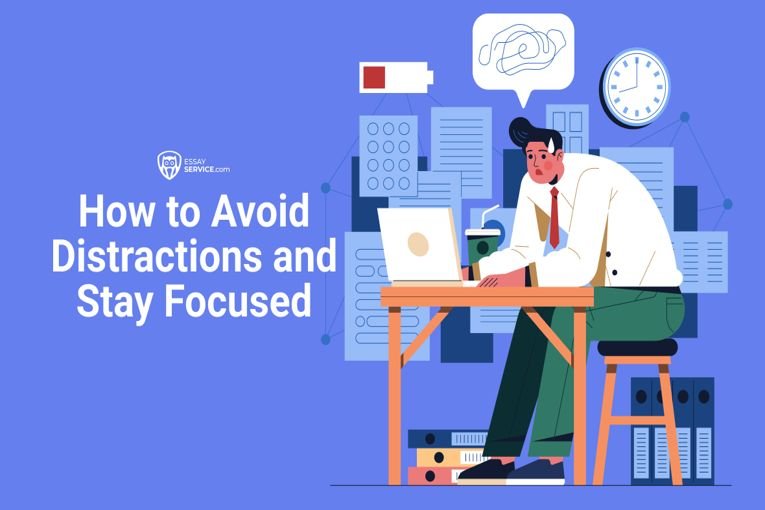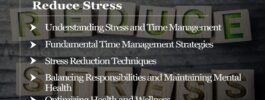Introduction
Distractions are a common challenge that many people face when trying to stay focused and productive. Whether you are working on a project, studying for an exam, or just trying to get through your daily tasks, distractions can interrupt your flow and make it difficult to stay on track. In this article, we will discuss strategies and techniques to help you manage distractions and stay on task effectively.
Identify Your Distractions
The first step in managing distractions is to identify what is causing them. Take some time to observe your surroundings and your own behavior to determine what is pulling your attention away from your work. Common distractions include social media, emails, noisy environments, and multitasking. Once you have identified your main distractions, you can take steps to minimize their impact on your focus.
Create a Distraction-Free Environment
One of the most effective ways to stay on task is to create a distraction-free work environment. This may involve finding a quiet space to work, turning off notifications on your phone and computer, or using noise-canceling headphones to block out external sounds. By eliminating potential distractions in your surroundings, you can create a conducive environment for staying focused and productive.
Set Clear Goals and Prioritize Tasks
Setting clear goals and priorities can help you stay on track and avoid getting sidetracked by distractions. Start by identifying the most important tasks that need to be completed and create a to-do list or schedule to organize your work. Break down larger tasks into smaller, manageable chunks and set specific deadlines to keep yourself accountable. By having a clear roadmap of what needs to be done, you can stay focused on your goals and minimize distractions.
Practice Mindfulness and Deep Work
Mindfulness techniques, such as meditation and deep breathing, can help you stay present and focused on the task at hand. By practicing mindfulness regularly, you can train your brain to stay attentive and avoid getting distracted easily. Deep work, a concept popularized by author Cal Newport, involves dedicating uninterrupted time to focus deeply on a single task without distractions. By incorporating deep work sessions into your routine, you can enhance your productivity and concentration levels.
Use Time Management Techniques
Effective time management is key to managing distractions and staying on task. Utilize techniques such as the Pomodoro Technique, which involves working in focused intervals followed by short breaks, to maintain your concentration and productivity. Set specific time blocks for different tasks and avoid multitasking, as it can lead to decreased focus and increased distractions. By managing your time effectively, you can make the most of your work hours and reduce the impact of distractions on your productivity.
Limit Your Access to Distractions
To minimize distractions, consider limiting your access to them. For example, if social media is a major distraction for you, use website blockers or apps that restrict your access to these sites during work hours. Set boundaries with colleagues or family members to avoid interruptions during important tasks. By proactively limiting your exposure to distractions, you can create a more focused work environment and improve your ability to stay on task.
Take Breaks and Refresh Your Mind
While it is important to stay focused on your work, it is also crucial to take regular breaks to rest and recharge your mind. Schedule short breaks between work sessions to relax, stretch, or engage in activities that help you unwind. Physical exercise, such as a short walk or quick workout, can boost your energy levels and improve your focus. By taking breaks and refreshing your mind periodically, you can prevent burnout and maintain your productivity throughout the day.
Seek Accountability and Support
If you find it challenging to stay on task due to distractions, consider seeking accountability from a friend, colleague, or mentor. Share your goals and progress with someone who can help keep you accountable and motivated. Joining a study group, coworking space, or online community of like-minded individuals can provide additional support and encouragement to stay focused on your tasks. By involving others in your productivity journey, you can increase your commitment to staying on task and achieving your goals.
Conclusion
Managing distractions and staying on task is a skill that can be developed with practice and perseverance. By implementing the strategies and techniques discussed in this article, you can improve your focus, productivity, and overall performance in various aspects of your life. Remember that staying on task is a continuous process that requires commitment and self-discipline. With determination and the right mindset, you can overcome distractions and achieve your goals efficiently.







